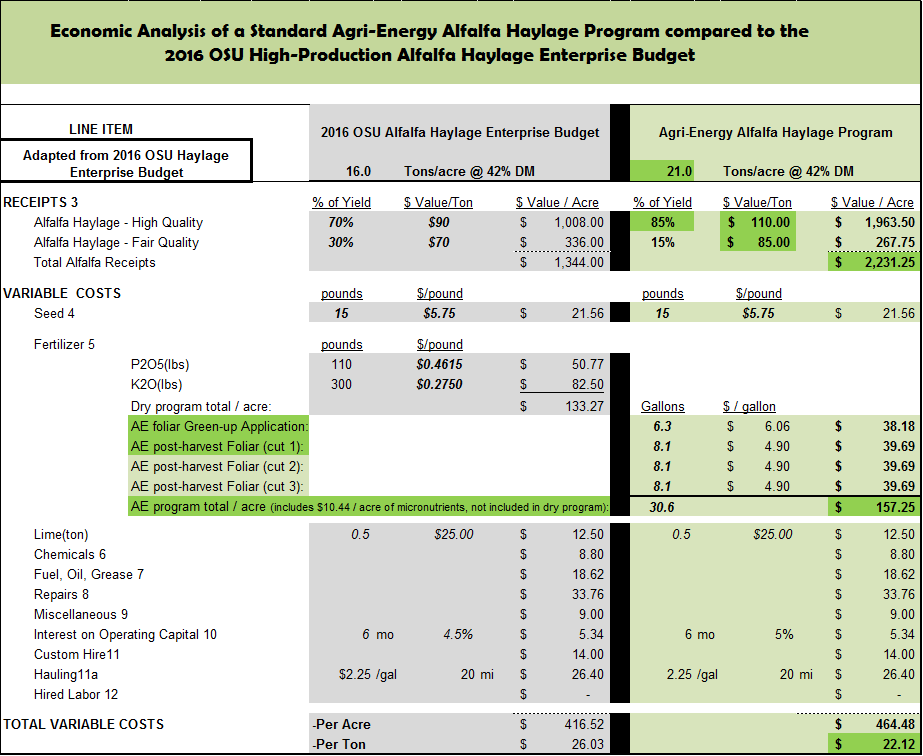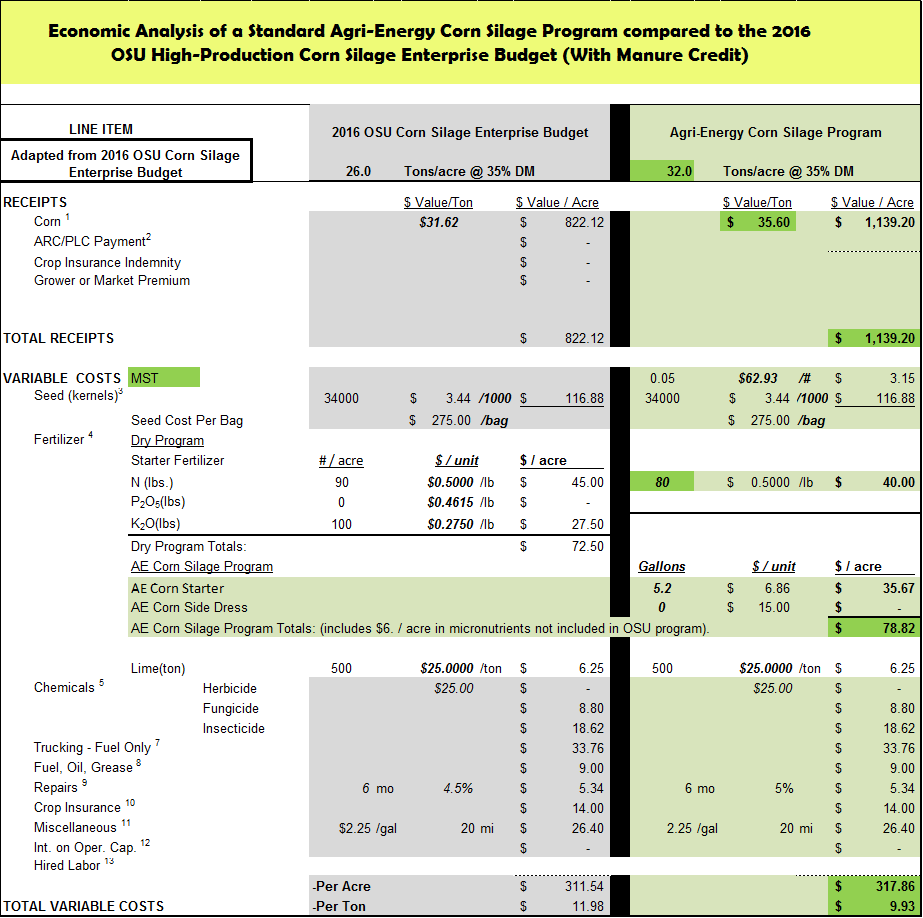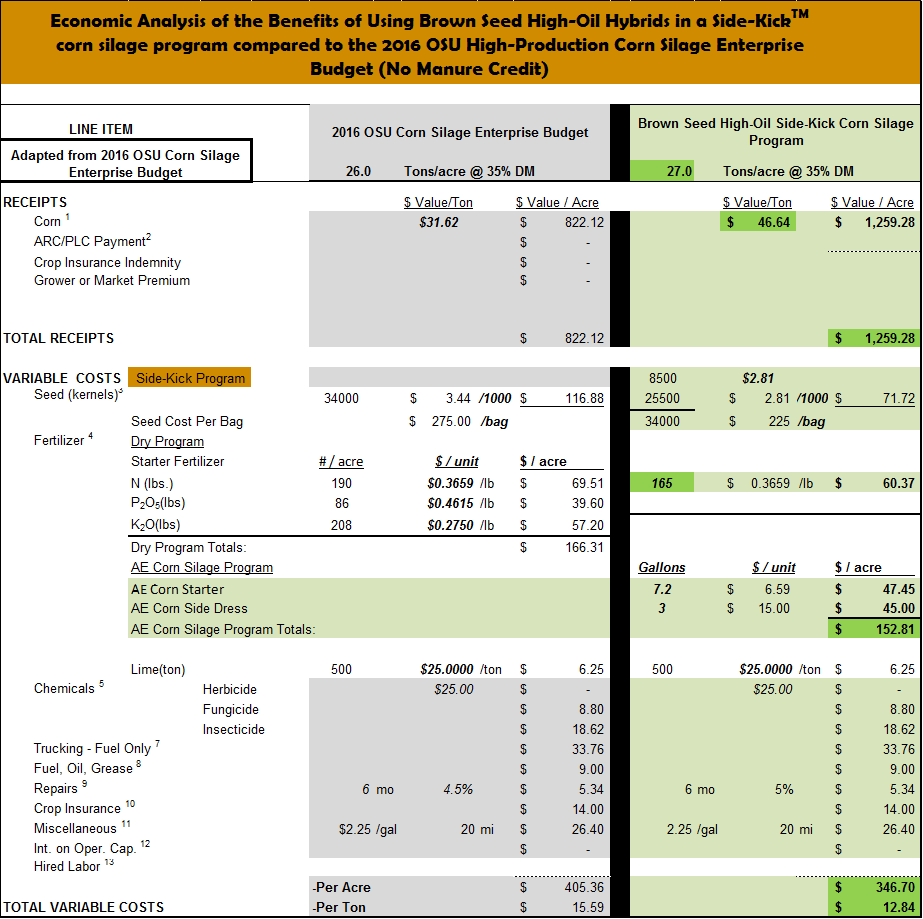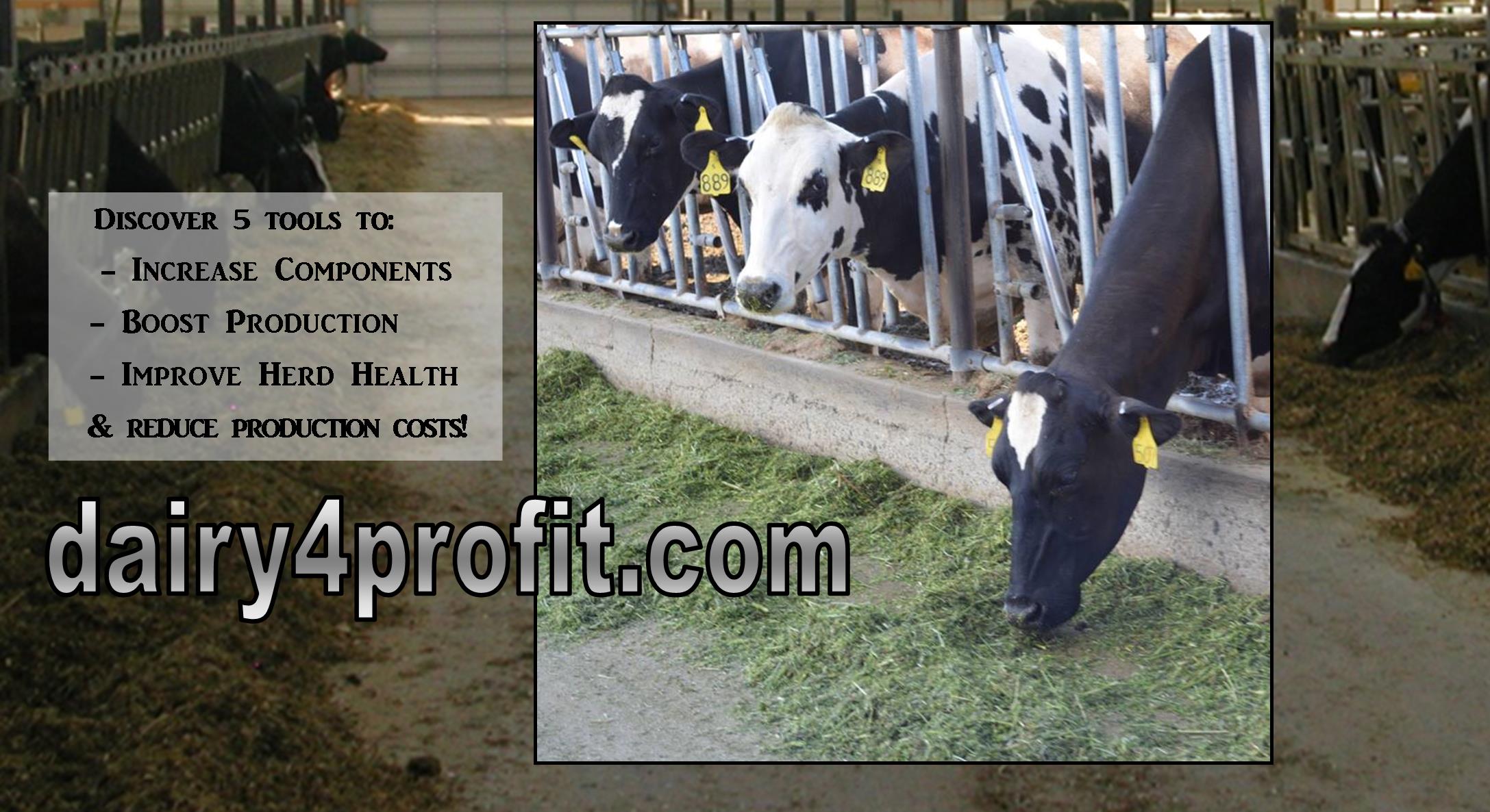Conventional Agronomic Mindset
Conventional University agronomy focuses on soil pH, and N, P & K applied in dry bulk. This is the paradigm I was taught at Ohio State and worked in during the early years of my sales career. This philosophy is based on the idea that if you put enough pounds of something on a field certainly enough of it will be available to the plants growing there.
Consider how well plants grow in your farm driveway where you spread the same limestone that you applied to your field-only in bigger chunks. As a result of working with grasses, I’ve realized the limitations of conventional agronomy and the dry bulk delivery method.
Limitations of Dry Bulk Soil Applications
First, conventional agronomy has only recently begun to acknowledge the role of microbiology in nutrient availability. Grasses (along with most crops) have a symbiotic relationship with beneficial soil microbes and obtain nutrients more efficiently when adequate, balanced populations are present (just like in a cow rumen).
Second, assuming availability is NOT a sure thing. Corn roots for example only come in contact with about 2 to 3% of soil particles. Moisture affects availability in the soil. Too much or too little make nutrients unavailable.
Third, the dry bulk delivery method requires the greatest amount of material to accomplish the least amount – extremely inefficient. True, certain major minerals like Calcium, Magnesium, Phosphorous and Sulfur need to be adequately present in the soil; however, banding and foliar application are far more efficient, especially for solid-seeded forages.
Following are several examples of the economic advantages of using Agri-Energy Alfalfa and Corn Silage programs based on years of experience and numerous on-farm trials.

Benefits of Biologicals & Foliars
Our conventional Agri-Energy Alfalfa Haylage program including: SP-1 biological, Starter Blend, Forage Boost, Foliar K-sulfate & key micronutrients has been shown to increase dry matter yields by up to 25% in dry conditions (figured for two of four cuttings) and raise RFQ (relative feed quality) 25 to 52 points.
RFQ includes an assessment of fiber digestibility; therefore, the AE haylage will typically have a higher milk/ton and a greater economic value. Samples from AE program test strips reporting ttNDFd were typically above 45 and 3 to 7 points higher than haylage test strips grown with a dry program similar to the OSU budget. Natural growth hormones delay maturity of alfalfa giving a longer ‘optimal’ harvest window.
The Bottom Line
Comparing these results with OSU high-production (16T) budget, the Agri-Energy Alfalfa Haylage program increased the harvested forage value by $877.25 per acre while reducing the variable cost per ton by $3.91 for less than $24 additional cost per acre ($10.44/acre is from micronutrients not included in the OSU dry program).

The Combined Impact of Manure & Biologicals
Our conventional Agri-Energy corn silage starter program including: SP-1 biological, Starter Blend & essential micronutrients has been shown to increase dry matter yields by 15 to 20 percent especially when large amounts of manure are applied.
An average improvement of at least 750 pounds of milk / acre accounts for the higher silage value per ton. In a manure based system, the net result is $317.08 increased silage value per acre for an additional $6 per acre investment (the cost of the micronutrients not included in the dry program).
Long-term Cost Savings & Benefits
Cost per ton of corn silage is $2.05 less than the OSU dry program. Adding the complex biological (SP-1) allows reducing applied nitrogen by 10% the first year, and an additional 15% in subsequent years (about $5 additional savings per acre the 2nd year; $9, the 3rd).
Farms utilizing manure that have been on an Agri-Energy Program for many years often have yields similar or better (200+bu corn; 28+T corn silage) than their neighbors with very little applied N. We tweaked the OSU dry program to represent many dairy farms that sidedress 28%N. Numerous studies have shown that banding highly available nutrients (like AE liquids) in or near the corn furrow is significantly more efficient in feeding the corn plant.

Great Results Possible Even Without Manure Applications
Many large dairies contract silage production with local conventional grain farmers. Similar advantages are produced even when manure is not part of the field fertility program. Our conventional Agri-Energy corn silage program including: SP-1 biological, Starter Blend, AE Sidedress Mix & essential micronutrients has been shown to increase dry matter yields by 15 to 20 percent over a number of years.
An average improvement of at least 750 pounds of milk / acre accounts for the higher silage value per ton. The net result is $245.88 greater silage value per acre while reducing fertilizer cost by just over $10 per acre the first year (about $20 the 2nd; $26 the 3rd).
Cost per ton of corn silage is $2.42 less than the OSU dry program. Adding the complex biological (SP-1) allows reducing applied nitrogen by 10% the first year, an additional 15% in subsequent years. Farms that have been on an Agri-Energy Program for many years often have yields similar or better (200+bu corn; 28+T corn silage) than their neighbors with as little as 50 units of applied N.
Biologicals Offer Higher Efficiency
The OSU dry program is based on NH3 and broadcast 11-52-0 and 0-0-62. Numerous studies have shown that banding highly available nutrients (like AE liquids) in or near the corn furrow is significantly more efficient in feeding the corn plant. We would also recommend switching to 28% or 32%N in a biological program because the high pH of NH3 is hard on beneficial microbe populations.
For more information about Agri-Energy products and programs for any crop click on the provided links. For an individual consultation about how to make these products work on your farm, email support@dairy4profit.com, call (888) 249-SEED or visit the DEALER page on our website www.fowlerseed.com/dealers to contact a dealer in your area.

